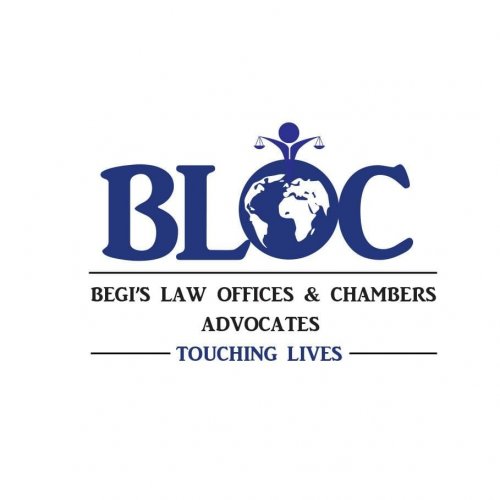Best Franchising Lawyers in Nairobi
Share your needs with us, get contacted by law firms.
Free. Takes 2 min.
List of the best lawyers in Nairobi, Kenya
Legal guides written by Adroit Law LLP:
- Kenya Launches Digital Nomad Visa: A Gateway for Remote Workers
- Navigating the Payment System License Maze in Kenya
- Navigating the Complexities of Mining Licenses and Permits in Kenya: A Look into Artisanal and Large-Scale Operations
About Franchising Law in Nairobi, Kenya
Franchising is a rapidly growing business model in Nairobi, Kenya, as it allows both international and local brands to expand by granting third-party operators the right to use their trademarks, systems, and business models. The legal framework surrounding franchising in Nairobi is influenced by both Kenyan law and international best practices. Potential franchisors and franchisees need to understand the legal intricacies involved to ensure compliance and protect their business interests.
Why You May Need a Lawyer
There are several reasons why individuals or businesses involved in franchising may require legal assistance:
1. **Drafting and Reviewing Franchise Agreements:** Legal professionals can help draft or review franchise agreements to ensure they are fair, comprehensive, and in compliance with local laws.
2. **Understanding Legal Obligations:** Both franchisors and franchisees must understand their legal obligations, rights, and liabilities under the franchise agreement.
3. **Dispute Resolution:** In the event of a misunderstanding or conflict, legal counsel can provide guidance on resolving disputes, whether through negotiation, mediation, or litigation.
4. **Compliance with Local Regulations:** Lawyers can ensure that the franchise operations comply with Nairobi's regulatory requirements, including licensing and business registration.
5. **Intellectual Property Protection:** Legal advisors can help protect trademarks and business secrets crucial to the franchise's success.
Local Laws Overview
The legal landscape for franchising in Nairobi, Kenya, involves several key elements:
- **The Competition Act, 2010:** This act ensures fair competition and addresses any monopolistic practices that may result from franchising arrangements.
- **Consumer Protection Act, 2012:** Franchisees must ensure that their operations align with consumer rights and quality standards as set out by this act.
- **Contract Law:** The Law of Contract Act governs the formation, performance, and enforcement of contracts, including franchise agreements.
- **Intellectual Property Laws:** The Kenya Industrial Property Institute oversees the protection of trademarks, a critical component in franchising.
Frequently Asked Questions
What is a franchise agreement?
A franchise agreement is a legal, binding contract between a franchisor and franchisee outlining the terms and conditions for the franchisee to operate under the franchisor's trademark and business model.
Do I need a lawyer to franchise a business?
While it's not legally required, involving a lawyer is highly recommended to ensure that all legal obligations are met and the franchise agreement is thoroughly understood and fair to all parties.
What are the main components of a franchise agreement?
Main components include the grant of the franchise, duration, fees and royalties, territorial rights, training and support, trademarks, termination, and dispute resolution mechanisms.
How are disputes resolved in franchising?
Disputes can be resolved through negotiation, mediation, arbitration, or litigation, depending on the terms of the franchise agreement.
What fees are involved in franchising?
Common fees include the initial franchise fee, ongoing royalties, marketing fees, and any fees associated with training and support.
Can a franchise be terminated?
Yes, franchises can be terminated based on the conditions specified in the franchise agreement, such as breach of contract or mutual agreement between parties.
What are my obligations as a franchisee?
Obligations typically include operating the franchise according to the franchisor's standards, paying fees, and adhering to non-compete clauses.
Is there a regulatory body for franchising in Kenya?
While there is no specific regulatory body for franchising, relevant oversight is provided by the Competition Authority of Kenya and the Kenya Industrial Property Institute.
Can foreign brands offer franchises in Nairobi?
Yes, foreign brands can offer franchises in Nairobi, but they must comply with local business, tax, and competition laws.
What support should a franchisor provide?
Support can include training, marketing, operational guidance, and ongoing assistance to ensure the franchisee successfully implements the business model.
Additional Resources
Several resources can provide guidance and assistance regarding franchising in Nairobi:
- **Competition Authority of Kenya:** Offers guidance on compliance with competition laws.
- **Kenya Industrial Property Institute:** Provides information on trademark registration and protection.
- **Kenya Law Website:** Offers access to legal documents and acts relevant to franchising.
Next Steps
If you are considering entering the franchising sector, it's crucial to seek legal advice to navigate the complexities involved. Start by consulting with a lawyer who specializes in franchising law to discuss your specific situation. Additionally, research potential franchisors, understand the market, and attend franchising seminars or workshops to increase your knowledge. Finally, ensure you conduct thorough due diligence before entering into any franchise agreement.
Lawzana helps you find the best lawyers and law firms in Nairobi through a curated and pre-screened list of qualified legal professionals. Our platform offers rankings and detailed profiles of attorneys and law firms, allowing you to compare based on practice areas, including Franchising, experience, and client feedback.
Each profile includes a description of the firm's areas of practice, client reviews, team members and partners, year of establishment, spoken languages, office locations, contact information, social media presence, and any published articles or resources. Most firms on our platform speak English and are experienced in both local and international legal matters.
Get a quote from top-rated law firms in Nairobi, Kenya — quickly, securely, and without unnecessary hassle.
Disclaimer:
The information provided on this page is for general informational purposes only and does not constitute legal advice. While we strive to ensure the accuracy and relevance of the content, legal information may change over time, and interpretations of the law can vary. You should always consult with a qualified legal professional for advice specific to your situation.
We disclaim all liability for actions taken or not taken based on the content of this page. If you believe any information is incorrect or outdated, please contact us, and we will review and update it where appropriate.

















